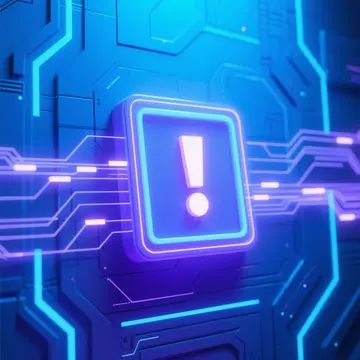With AI-generated music entering mainstream use, especially in advertising, games, YouTube videos, and branded content, creators and companies face new legal gray areas. While AI tools offer speed and creativity, they also come with AI music copyright risk—a rising concern for anyone using AI music in commercial projects.
In this guide, we break down the key legal risks, real-world examples, and how you can protect your business from costly legal trouble.

?? Why Understanding AI Music Copyright Risk Matters
AI-generated music may sound original, but it often borrows from massive datasets of human-created works. Without clear global copyright rules, commercial use of AI music exposes creators and companies to lawsuits, takedowns, and reputation damage.
?? Top Legal Risks of Using AI Music in Commercial Projects
1. Unclear Ownership
Who owns an AI-generated track? In many jurisdictions, AI-created works cannot be copyrighted unless there is significant human input.
If your commercial track has no human authorship, it may be unprotectable, leaving it open for reuse or theft.
If you use a third-party AI tool, the platform might own the output, not you.
2. Infringement Through Training Data
Many AI music tools are trained on copyrighted songs. If your AI track unintentionally mimics a protected melody or arrangement, you risk being sued for copyright infringement—even if the similarity is algorithmically created.
This is a major AI music copyright risk for commercial users who assume AI = safe.
3. No License, No Rights
Even if AI music sounds "original," using it in a commercial setting without proper licensing or rights clearance could breach copyright law—especially if:
The AI tool has unclear terms of use.
You use AI vocals that mimic real artists (voice cloning).
4. Voice and Likeness Rights Violations
Some AI music generators replicate specific vocal styles. Using these in ads or products may violate personality rights, especially in the U.S. where public figures can sue over unauthorized use of their likeness or voice.
?? Real Case Study: The Ghostwriter x Drake & The Weeknd Incident
In 2023, an anonymous artist named Ghostwriter released “Heart on My Sleeve,” an AI-generated track mimicking Drake and The Weeknd’s voices. The song went viral on TikTok and streaming platforms but was swiftly removed by Universal Music Group.
Legal Issues Raised:
Unauthorized voice cloning.
Trademark and brand association risks.
No copyright protection for the AI output.
This case highlights the AI music copyright risk of vocal likeness violations, especially when used for public or commercial distribution.
?? Country-by-Country Differences
Legal risks vary by location:
| Country | AI Music Copyright Status | Risk for Commercial Users |
|---|---|---|
| USA | No copyright for AI-only work | High—voice and likeness laws apply |
| UK | Protects computer-generated works (50 years) | Medium—depends on tool ownership |
| Japan | Lenient on training data | Lower—output copyright still unclear |
| EU | Requires licensing for training data | High—strict copyright enforcement |
| China | Regulating AI content use | Growing legal framework |
??? How to Reduce AI Music Copyright Risk
Read the Terms of Use Carefully
Only use AI tools that grant commercial licenses for generated content.Use Human-Made Edits
Adding human arrangement, lyrics, or vocals can help qualify for copyright protection.Avoid Imitation of Real Artists
Don’t use AI to mimic celebrity voices or styles unless you have legal permission.Register Your Work When Possible
Some countries allow you to register AI-assisted music if you can show human contribution.Keep Documentation
Save proof of how the track was created, including the tool used and version history.
?? Final Thoughts: Is It Safe to Use AI Music Commercially?
Using AI music in your projects isn’t illegal—but it’s not without risk. Until laws catch up with technology, the AI music copyright risk will remain a serious concern for commercial creators.
If you’re a brand, content creator, game developer, or advertiser, take steps now to verify rights, avoid infringement, and work with platforms that offer commercial-safe AI solutions.
FAQ: AI Music Copyright Risk
Q1: Is AI-generated music copyrighted?
In many countries, not unless there's a clear human authorship component.
Q2: Can I use free AI music for YouTube videos?
Only if it’s explicitly labeled for commercial use and doesn’t violate other rights like voice likeness.
Q3: What happens if my AI track is flagged for copyright?
It may be taken down, demonetized, or become subject to legal claims or lawsuits.
